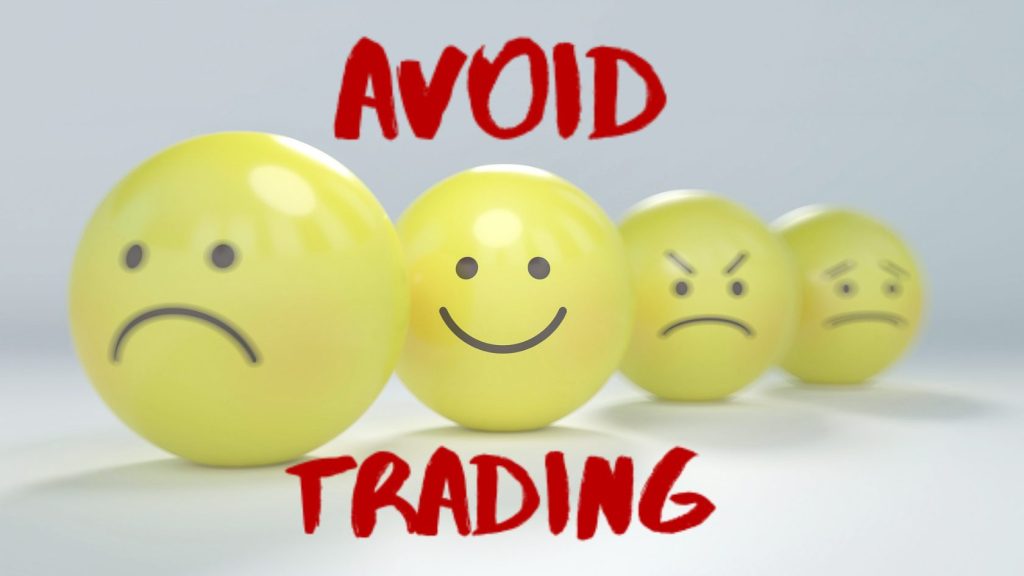Psychology plays a very crucial aspect in the forex trading journey. Every person is unique in himself and has different mental and emotional factors. Individual psychology in forex trading plays a vital role. Taking care of these psychological aspects in trading is the most critical aspect. They influence one’s decision-making. One can only be a good trader once he controls his inner impulses. A new trader generally faces more psychological imbalances and personal biases, which are dreadful for successful trading. Keeping personal biases aside, objective analysis of technical and fundamental aspects is the linchpin of success or failure. Wrong risk management, fear of missing out, and greed are the most associated psychological behaviors with traders.
According to The Knowledge Academy, experts believe 70% of successful trading is about trading psychology and 30% is about trading strategy.
Here are some common psychological behaviors traders face and ways to control them to become successful.
Related: Five must-dos before forex trading
1. The Psychology behind Fear of Missing Out (FOMO)

FOMO is most associated with new and young traders. It is a condition where a trader thinks he needs to take advantage of the opportunity of a good entry when the graph shows a dip or surge. Traders ignore technical and fundamental aspects and jump onto making a wrong entry, ending up losing money. This condition is created when the market is too volatile or a vital report is to come. This behavior slowly vanishes with experience; however, if one has prior knowledge, he can save himself from initial losses.
What are the best times for trading forex?
How to Overcome FOMO?
- First, one must accept that this is an actual condition. Recognition of the condition is the first step. Most new traders need to gain an understanding of this condition at the beginning of their journey. So, you are facing FOMO if you face an urge to place an entry just by looking at the graph and ignoring your analytical results.
- Do not get over-motivated or influenced by other traders. Taking motivation from others is good, but being over-motivated by successful traders’ life stories can harm your rationality. Young people try to get rich overnight, and over-motivation creates a sense of FOMO.
- One of the most significant drawbacks of FOMO is that it forces new traders to make multiple entries when the trader has already made a wrong entry. Traders have already ignored technical and fundamental analyses and are making more entries with a false hope of loss recovery; this multiplies the loss of the trader.
Best-performing cryptocurrencies of 2023
2. The Psychology of Greed

We all have been listening to the famous proverb, “Greed is Curse.” You may not have experienced it, but when you become a trader, you often experience it and regret it afterward. Human psychology is naturally greedy, and everybody wants more and more profit out of a trade or in a minimum time. Greed severely affects rationality and risk management and influences you to make high-risk trades. Greediness will affect you throughout your trading journey, and you may resort to lesser gains quite often.
How to Overcome Greed?
- One must have a clear target to achieve. Suppose you are a day trader, and your aim is 100 USD a day; you must stick to it. You made an analysis to reach your target, but your greed will influence you to hold the trade for extra time for extra profits. Please don’t hold it. If you want extra profits, set a higher target and work accordingly.
- Focus on your trading technique; greed will influence you to get detracted from your set technique. If you are a day trader, strictly focus on your day trading. Do not try swing trading because you made an analysis for day trading, not for swing trading.
- Remain consistent with your risk management technique. Do not make impulsive high-risk trades for extra profits. Greed overshadows your rationality to make high-risk trades. However, it should be highly discouraged.
Eight Online careers from home
3. The Psychology of Fear

Fear infuses an inverse effect on your trading. This stage comes after someone has lost some money already. He/she has now become extra cautious about starting trades. Although the reasons for his early losses can be either of the abovementioned, the trader will start questioning his analysis this time. He will hesitate to make an entry even if he finds a good entry point, ultimately losing a good opportunity. It may seem contradictory to FOMO, but in reality, every trader faces this behavior.
How do people achieve Financial Freedom?
How to Overcome Fear?
- As discussed above, it is a pretty late stage, so if a trader has lost money in the initial stages, he needs to find out the exact reason for his loss and try to overcome that mistake. Rather than directly questioning your analysis, check whether you have been a victim of FOMO or greed, then decide.
- Stick to your plans and techniques; this is trading, and you can face profits and losses. A 70% success ratio is considered very good in trading. A 70% success ratio means you make three wrong decisions out of 10. Remember, nobody can achieve a 100% success ratio; you must maintain a 60% success ratio to gain profits.
- If you have worked on your analysis skills, be confident. Look for long-term strategies. There are no shortcuts in trading. It is a process of learning and improving decision-making skills; just like other processes, it will also take time for improvement, so have faith and confidence in yourself.
Learn about different aspects of financial literacy
4. Overconfidence
Another aspect behind trading psychology is overconfidence. This is the one attribute that impacts your trading journey and every other aspect of your life. An overconfident person ignores his mistakes and keeps on repeating them. If you have the issue of overconfidence, you are going to face difficulties in every stage of your trading journey. Overconfident people need to pay more attention to inputs from other sources, which are crucial for technical and fundamental analysis.
What is GDP? What is GNP? What is the difference between them?
How to Overcome Overconfidence in Trading?
- Please respect others ‘ opinions. If you are trading alone or especially in a group, you will come across many platforms for information and views for your analysis. Try to take that information and opinion rationally rather than rejecting it outright or accepting it irrationally. Assess the source of information/ opinion, keeping your biases aside.
- Overconfident traders are more likely to make high-risk trades and excessive trading, so work on your risk management and target and stick to them.
5. Emotional Trading

Emotional trading refers to trading while experiencing strong emotions such as happiness, anger, anxiety, excitement, etc. Research has shown that when a person is emotionally charged, they tend to act irrationally and pay little attention to the consequences of their actions. Emotionally charged trades can result in significant losses. In fact, most trades made under such conditions result in a loss. So, it is best to avoid trading when you are not emotionally stable.
What is paper currency? Why it losses value over time?
How to Control Emotional Trading?
- Many part-time traders engage in trading during their free time. After a long and tiring day at work, individuals are often emotionally charged and unprepared for unforeseen circumstances. If you are a full-time employee, it is important to refresh yourself before engaging in trading activities.
- If you are having a bad day at work or home, do not trade that day; give yourself time to relax; your health is more important than trading.
- You can reserve time for trading; you should feel relaxed to focus maximum on your analysis. The importance of technical and fundamental analysis is known to every trader.
- Refrain from trading late at night, especially if you are a full-time employee. Studies have shown that brain function is slowest during late night. Trading is not a 100m race; it is a marathon; you have to balance out each aspect to become a successful trader.
Bottom Line
The article discusses the crucial role of individual psychology in forex trading. It highlights traders’ common psychological behaviors, including fear of missing out (FOMO), greed, fear, and overconfidence. It provides tips such as recognizing the condition, having clear targets, focusing on the trading technique, and sticking to the plans and strategies that will bring you success in your journey.

[…] How does psychology effect forex trading? […]
[…] How does psychology effects forex trading? […]
[…] How individual’s psychology impacts trading? […]
[…] affecting the exchange rate. Sentiments in financial markets have a substantial effect on foreign exchange rates. Any geopolitical event, news, or market speculations may cause significant volatility in the […]